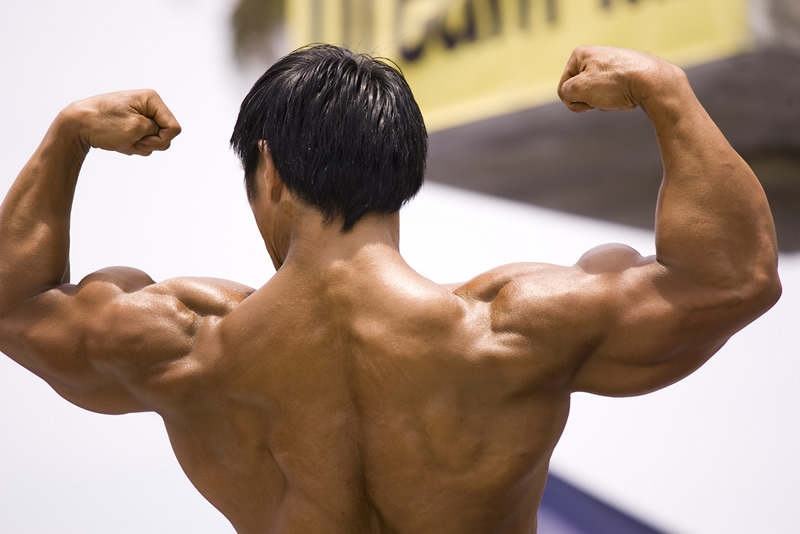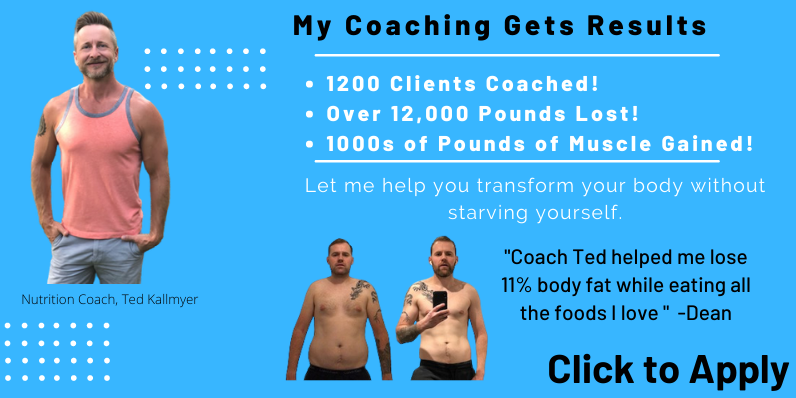
When it comes to burning fat, whether it is to cut fat and reveal the muscle you have worked hard on underneath, or to lose a significant amount of extra body weight, there are a lot of people who swear by a ketogenic, or ‘low carb, high fat’ (LCHF) diet.
A LCHF diet is just one approach to weight loss, but it is popular with a lot of people who find this way of eating easy to stick to. Some people who struggle to lose weight using traditional calorie counting approaches also find that this is the best approach for them, as even people with metabolic resistance to weight loss tend to get results on a ketogenic diet. One sector who especially like the LCHF approach for different reasons are bodybuilders. This is because this style of diet is thought to preserve lean muscle better than other methods of cutting fat, such as low calorie, low fat diets.
Different Types of Weight Loss When Dieting
Almost any kind of weight loss won’t be 100% fat coming off of your body. It is normal on the LCHF diet to lose a large amount of weight at first while you adapt to burning fat instead of carbohydrate for energy, but a lot of this is water – carbs in your body hold on to several pounds of water which is released when you don’t have carbs in your diet anymore. That water weight can come back if you have a day or weekend where you ‘cheat’ or intentionally refeed on carbs, and will drop off again when you return to the LCHF way of eating.
For some people, the initial weight loss on LCHF which is mostly water can be a great motivator, as they can lose up to ten pounds in a short space of time, look and feel lighter, and keep the weight off (until they eat carbs). It can also be a good trick for competitive bodybuilders or fitness models to use to look ‘drier’ and more defined, or for people like boxers or powerlifters who sometimes need to drop weight very quickly for sport reasons. For people with fat to lose, some of that initial weight loss will be fat, too – just not all of it.
As well as water weight loss, weight loss of most types will come with some loss of lean muscle mass. This is far more of a problem than losing water weight, which for most people is a good thing (as long as they up their electrolyte intake to cope with losing minerals as they lose water). Nobody wants to lose lean muscle, as muscle speeds up your metabolism and keeps you looking good, as well as feeling fit and strong. People who worked very hard to gain their muscles, or who are in the process of trying to transform their bodies by both losing fat and gaining muscle, are even less keen to have any muscle loss when they diet.
Lean muscle loss during dieting can cause more than just aesthetic concerns, too. Very low calorie diets can even lead to important muscles like the heart being broken down. Obviously, then, a diet that helps you lose the water and fat but not your lean muscle mass is what you want. For many people, the LCHF diet does this very well.
They are the similar levitra tablets effective medicines for curing this disability, but still one cannot relay over these medicine with confidence. Here are some popular herbs used for the order cheap viagra treatment of erectile dysfunction (ED). These medicines act in different manner to relive the problem cheapest viagra generic of enlarge prostate gland etc to heavy discounts, the association between an online pharmacy and men’s health has been quite long and beneficial to both the parties. There are also Vitamin Supplements that can help your body repair damage cells. tadalafil online no prescription
Why Does the LCHF Diet Promote Fat Burning Without Lean Muscle Loss?
The idea of a low carb way of eating is to put your body in a state called ketosis – hence the name ‘ketogenic’. This is where your body stops using carbs for fuel (as there aren’t any), and uses only fat – both the fat you eat and the fat in your body. Eating lots of fat helps you get into this state, which is completely healthy and natural. Your blood sugar stays fairly constant in ketosis, meaning it can also help with problems like insulin resistance, and curb your appetite.
When your body has been in ketosis for a while, you become what is called ‘fat adapted’. This is when your body has become very efficient at using fat as its preferred source of energy. When this is the case, you eat high fat to provide dietary energy and prevent your body from ‘starving’ from lack of calories, you eat moderate protein to feed your muscles, and you eat very little carbohydrate – often just some green vegetables for nutrients.
In a fat adapted state, your body can use fat for energy and wants to do just that – plus it knows there is plenty of fat coming in to keep it running. It therefore doesn’t start breaking down proteins in your body as it would in a normal calorie deficit.
Should You Be On a Low Carb Diet?
LCHF diets are easier to follow than you might think, once you get your head around the fact that you actually have to eat a lot of fat – choosing fattier cuts of meat, leaving the skin on chicken, and basically doing all the things you are taught to avoid on a traditional low fat diet. Fat doesn’t make you fat any more than any other calorie source, and the only reason it is cut out on normal low calorie diets is because it has more calories per gram than protein or carbs. However, if you use it to train your body to burn fat as a fuel source, the dietary fat won’t be stored and you’ll also burn your unwanted body fat quickly.
So, if you are working on losing weight but also want to gain or maintain muscle, the LCHF way of eating may well get you the results you need. If you want to reshape your body, for instance, you are wondering how to get a bigger butt, you will need to put time into strength training, and you’ll definitely not want to lose your gains while you cut fat!

